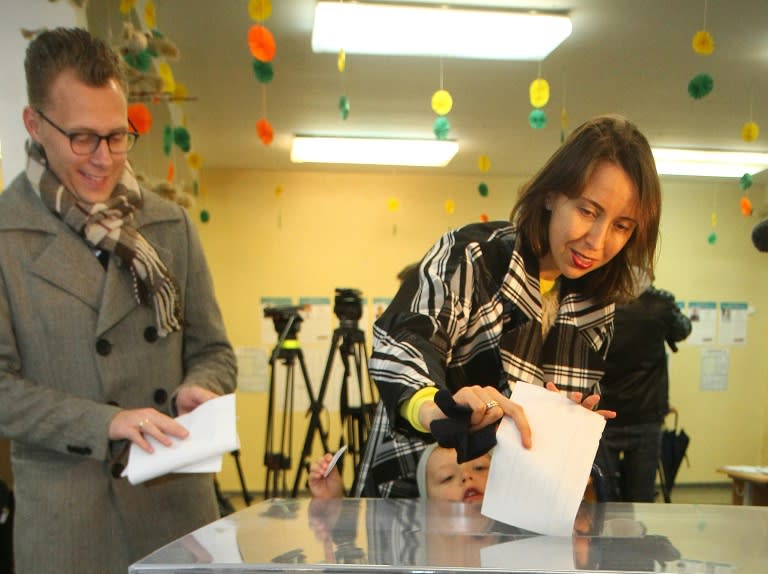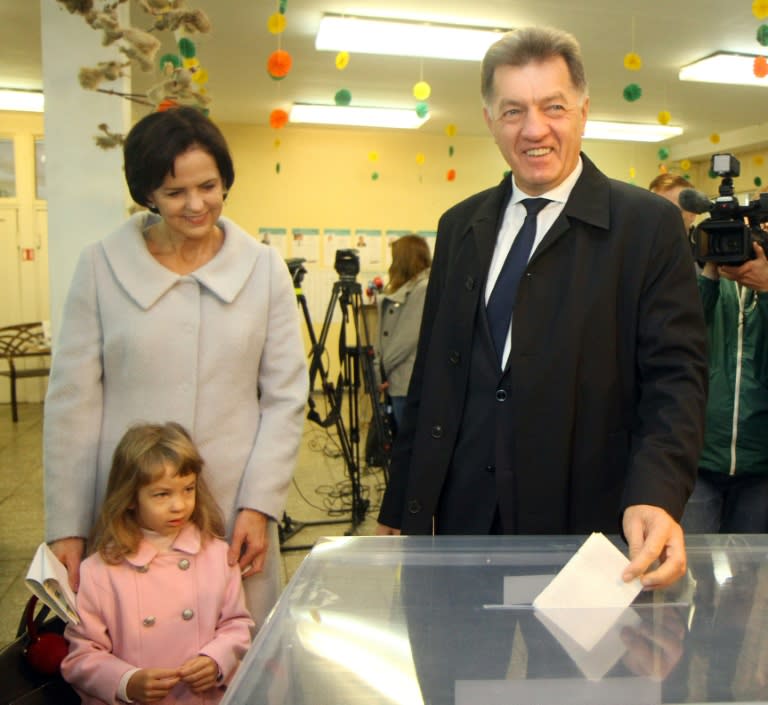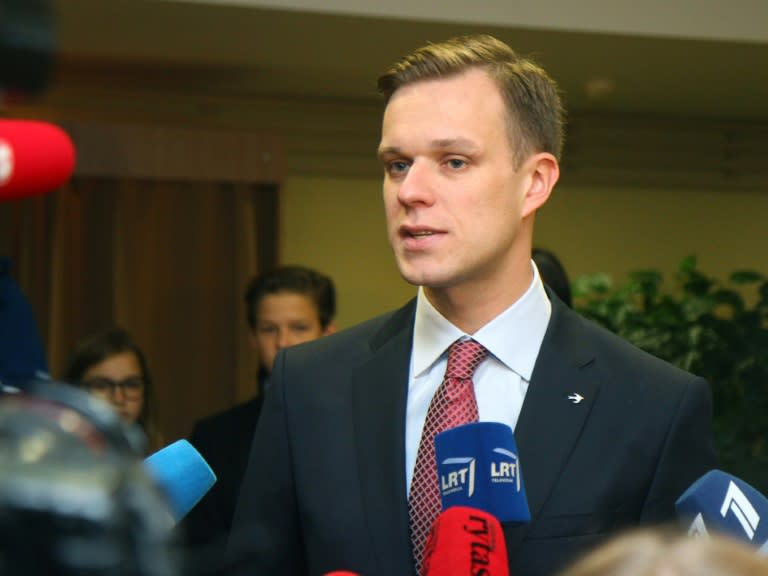Leftists struggling to survive as Lithuania votes
Lithuania's leftwing government was struggling to survive Sunday in round one of a general election, with voters bitter over economic inequality and mass emigration from the Baltic eurozone state. Official results expected early Monday could deal a blow to Prime Minister Algirdas Butkevicius's Social Democrats ahead of the decisive October 23 run-off round. No exit polls were issued after the close of voting at 1700 GMT. The election commission tallied turnout at 50 percent of the 2.5 million eligible voters. Five to eight parties are expected to enter parliament, signalling complicated coalition talks. Vilnius university analyst Mazvydas Jastramskis told AFP Sunday he expected those talks to get into full swing between the two rounds, but no coalition deal was likely to be sealed before the final vote. A pre-election opinion survey by local pollsters Spinter Tyrimai showed two parties running close behind Butkevicius's leftists, which have 15.6 percent support. The farmer-backed centrist Lithuanian Peasant and Green's Union (LPGU) led by popular former national police chief Saulius Skvernelis would take 14 percent. Analysts point to him and his party as potential kingmakers in coalition talks. "We're talking with everyone, and after the first round more specific talks could start," Skvernelis told reporters after voting in Vilnius. The conservative Homeland Union enjoyed 13.7 percent backing in the pre-election survey. Its leader Gabrielius Landsbergis, 34, has said he is keen to forge a coalition with the LPGU and analysts tip him as a favourite for prime minister. "The core of the coalition can be either LGPU with Social Democrats, or LGPU with conservatives and liberals. Today, I would bet on the latter," analyst Jastramskis said. - 'Reduce emigration' - Wage growth and job creation have been key rallying calls for candidates in the country of 2.9 million people, plagued by an exodus of workers seeking higher wages. Since Lithuania joined the EU in 2004, nearly half the estimated 370,000 people who have left went to Britain, where concern over eastern European immigration was seen as a key factor in the Brexit vote to leave the bloc. Butkevicius, 57, has promised further hikes in the minimum wage and public sector salaries, but a new labour law which makes it easier to hire and fire employees could eat away his party's slim lead. Voting in Vilnius Sunday, Butkevicius vowed to "live up to expectations" if his party wins. But President Dalia Grybauskaite has said she voted "for changes" in an apparent swipe at him. Presenting himself as the face of change, Landsbergis has vowed to fight emigration and poverty by creating jobs, reforming education, boosting exports and foreign investment. Lithuania's economy staged a remarkable recovery after taking a nosedive during the 2008-9 global financial crisis, and is slated to grow by 2.5 percent this year. But average monthly wages of just over 600 euros ($670) after taxes are among the EU's lowest, while inequality and poverty remains comparatively high. "The most important thing is to reduce emigration," Vilnius pensioner Danute Tonkuniene told AFP after voting for Landsbergis. "Though all of my grandchildren are in Lithuania, I don't want them to leave." - 'New faces' - Public sector employee Dale Adasiune said she voted for "new faces" from the LPGU. "I returned from Spain four years ago and I don't want to leave again. I found a job, engaged in volunteer work, but if nothing changes, I'll leave again," she told AFP. Vilnius pensioner Jonas, who declined to reveal his surname, also chose the LPGU saying he had been won over by party leader Skvernelis. "I used to vote for the Social Democrats, but they've disappointed me," he said. Skvernelis, the 46-year-old ex-police chief popular for clobbering corruption in the force, has become a hot political commodity since taking up politics two years ago. Russia's latest deployment of nuclear-capable Iskander missiles to its neighbouring Kaliningrad exclave jangled nerves just a day ahead of the vote. But the reassurance provided by NATO's beefed up presence in the Baltic state -- a move that all major parties endorse -- means that voters are more worried about their wallets than security. Seventy lawmakers were elected Sunday by proportional representation from party lists, while another 71 will be elected in single-member constituencies in the decisive run-off in two weeks.




